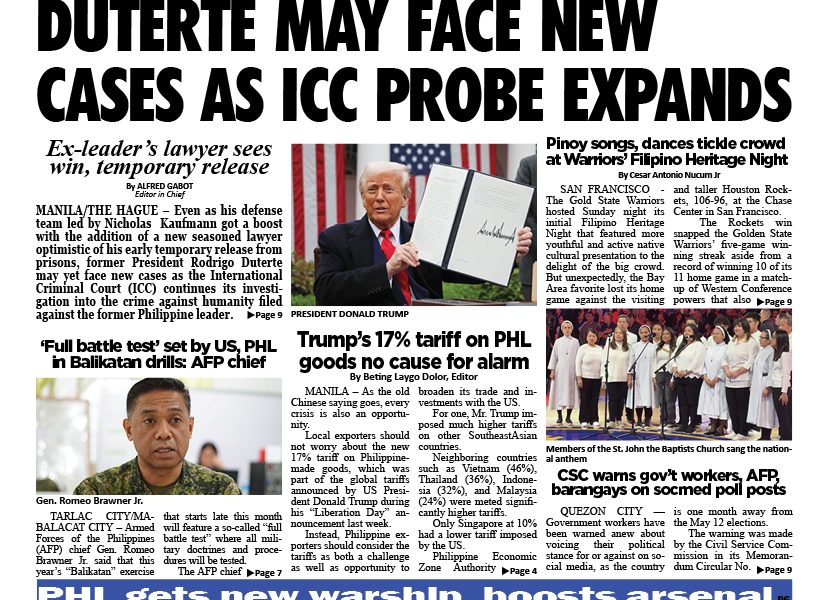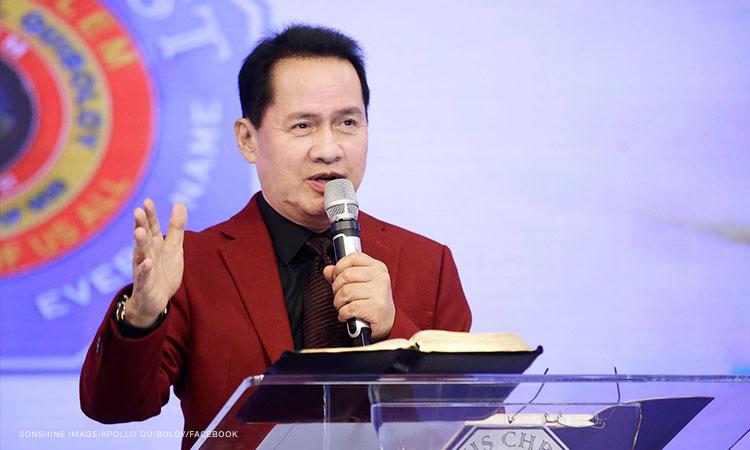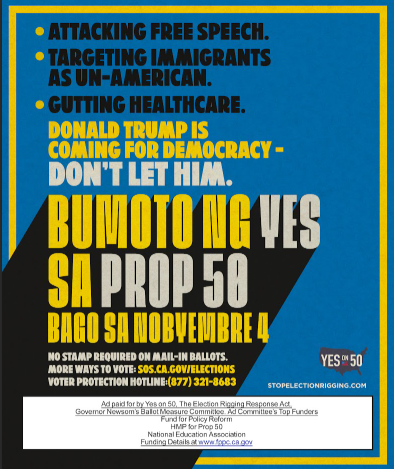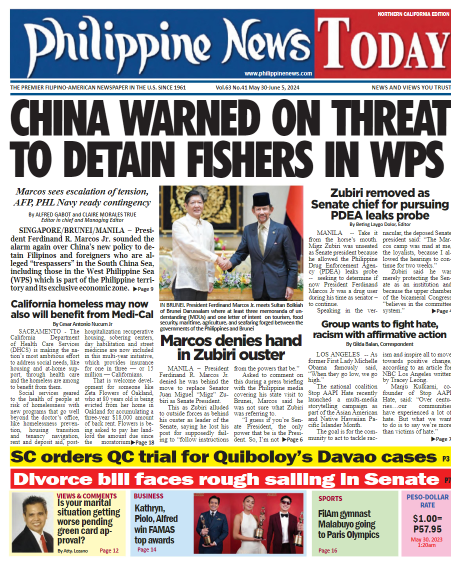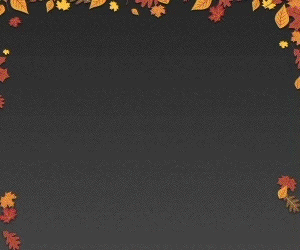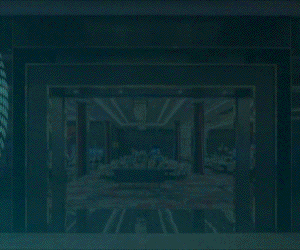DUTERTE MAY FACE NEW CASES AS ICC CONTINUES PROBE; Ex-leader’s lawyer sees win, temporary release
By ALFRED GABOT, Editor in Chief
MANILA/THE HAGUE – Even as his defense team led by Nicholas Kaufmann got a boost with the addition of a new seasoned lawyer optimistic of his early temporary release from prisons, former President Rodrigo Duterte may yet face new cases as the International Criminal Court (ICC) continues its investigation into the crime against humanity filed against the former Philippine leader.
At the same time, a spokesman of the ICC hinted that more personalities may be ordered arrested following the ongoing investigation. There are unconfirmed reports hinting that former Philippine National Police chiefs now Senator Ronald dela Rosa and Oscar Albayalde may face arrest soon.
Fadi El Abdallah, ICC spokesman, disclosed in interviews that the prosecution is continuing to scrutinize Duterte’s case, gathering additional evidence to present before the judges to issue another arrest warrant for other key personalities involved in the implementation of the summary killings waged by the Duterte administration.
Meanwhile, Vice President Sara Duterte has returned to Manila after finalizing the defense team of her father, confident that the lawyers have strong basis to work out the early temporary release of Mr. Duterte as they questioned how he was whisked to the Hague violating his rights and due process.
The Vice President said her father wants to go home soon and serve as mayor of Davao City as he thanked supporters in the Philippines and other countries for their continuing show of support.
In another development, Mr. Duterte’s children led by Veronica are pressing the Supreme Court to hold oral arguments on the petition they filed before the High Court questioning the arrest of the former president.
This as the Supreme Court directed lawyer and senatorial candidate Raul Lambino to show cause for spreading fake news about a supposed temporary restraining order (TRO) from the tribunal to stop the arrest of the former president to face charges before the ICC.
Meanwhile, ICC-accredited lawyer Joel Butuyan said the completion of Duterte’s legal defense team means that incidental matters raised by the defense may be brought to the attention of the ICC pre-trial court and resolved sooner.
Among the preliminary matters raised by Duterte’s counsels is the question of jurisdiction of the ICC following the Philippines’ withdrawal from the ICC during his term.
Butuyan said the case against Duterte may be completed in as little as a year considering the evidence at hand.
Veronica “Kitty” Duterte asked the Supreme Court to hold oral arguments on her petition challenging the legal basis of her father’s arrest under an alleged ICC warrant.
The motion for oral arguments was filed on Monday, April 7, by Veronica, through her lawyer Salvador Panelo, the former presidential legal counsel.
In the filing, Veronica argued that such proceedings would offer a transparent platform for the Supreme Court to address what she deems as significant legal and constitutional issues surrounding the case and its wider implications.
“The outcome of these petitions could influence public trust in the Judiciary and the accountability of high-ranking officials,” Veronica said in her filing.
She also argued that their consolidated petitions for habeas corpus raise urgent constitutional issues and novel legal questions, describing the matter as one of “transcendental importance” and “significant public interest.”
Veronica, alongside her brothers Davao City Mayor Sebastian Duterte and Rep. Paolo Duterte (Davao City), argued in their petitions that their father’s arrest was unlawful, asserting that the ICC lacks jurisdiction over the Philippines. They cited the country’s withdrawal from the Rome Statute in 2019 as grounds for their claim.
In response, government lawyers referred to Section 17 of the Philippine Act on Crimes Against International Humanitarian Law, Genocide, and Other Crimes Against Humanity.
The provision states that Philippine authorities may surrender or extradite suspected individuals to an international tribunal if it is already conducting an investigation or prosecution of such crimes
“The ICC prosecutor and his office are continuing to investigate and if they have sufficient evidence, they will present it to the judges, and then the judges will decide whether to issue…arrest warrants or to decline the requests,” ICC spokesman Fadi El Abdallah added.
An ICC document dated 13 March showed that the former president has nine co-perpetrators in the case, whose names were redacted by the court.
The arrest warrant against Duterte only pertains to murder, or equivalent to a single charge. But Abdallah explained that it could still be augmented if the prosecution presented an additional set of evidence for other charges, such as rape and torture, which were included in their initial complaint.
“Whether the prosecutor wants to request again, present additional evidence, or request other charges, it will have to be presented to the judges, and then the judges will decide on that,” Abdallah said.
The ICC, in its arrest warrant, said there were “reasonable grounds to believe” at least 19 people had been murdered in the city by members of the “Davao Death Squad” headed by Duterte.
Additionally, based on the warrant, at least 24 people were killed by Philippines police in various locations.
Duterte, who is currently detained at the Scheveningen prison in The Hague, will have his next scheduled court appearance on September 23 for the confirmation of the charges against him.
Additional charges against Duterte was also hinted by lawyer Joel Butuyan, saying other charges may be included by prosecutors ahead of the Sept. 23 confirmation of charges against Mr. Duterte.
Butuyan said that Duterte is only facing charges of crimes against humanity committed due to his drug war carried out between Nov. 1, 2011 and March 16, 2019 during his time as Davao City mayor and then Philippine president.
“Now, that’s only a single charge. So, not included are illegal imprisonment, torture, illegal detention and other inhumane acts. We can see that by Sept. 23, prosecutors can actually apply for additional charges, not only murder,” he said.

